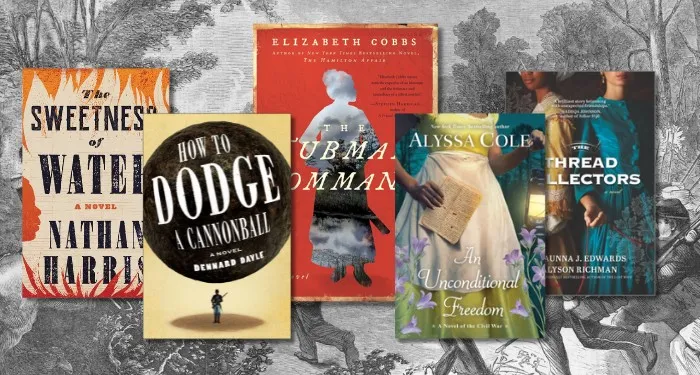On Thursday, August 8, 1929, Virginia Woolf fired her longtime servant Nellie Boxall, or she tried to. Boxall had been with Woolf and her husband, Leonard, for thirteen years, and the relationship between the two women was a roller coaster. In her diaries and letters, Woolf paints Boxall (whose name she persistently misspells as “Nelly”) as an excellent cook, a controlling busybody, and a passive-aggressive hypochondriac. Meanwhile, Woolf finds herself trapped between patrician disdain—she sees in Boxall, she writes, “a human mind wriggling undressed,” a “mongrel” without education who has no idea how to move among her betters—and her own progressive commitments. “Our domestic system is wrong,” she observes, denouncing “the system of keeping two young women chained in a kitchen to laze & work & suck their life from two in the drawing room.” Service is parasitic, and like any form of dependence it breeds as much aggression as it conceals. On that August day, the tension boiled over:
In the midst of the usual anger, I looked into her little shifting greedy eyes, & saw nothing but malice & spite there, & felt that that had come to be the reality now: she doesn’t care for me, or for anything: has been eaten up by her poor timid servants fears & cares & respectabilities. And so at lunch L. & I settled it; & I spoke two words, which she almost pulled out of my mouth in her eagerness to show herself delighted & eager & hard & untouched—a sordid painful scene.
Two days later all was forgiven: “Nelly—how long ago that seems!—is staying.”
Woolf was fixated on Boxall. “If I were reading this diary,” she wrote in December of that year, “if it were a book that came my way, I think I should seize with greed upon the portrait of Nelly, & make a story.” She never quite did. The “Time Passes” section of To the Lighthouse (1927) follows the bustling of the Ramsay family’s housekeeper, Mrs. McNab, as she cares for their summer house during the ten years it goes unused, but there are few similarities between this benevolent domovoï and Boxall, too perplexing a character to satisfy any easy symbolic purpose. There might, however, be a secret kinship between Boxall and Mildred, the Ramsays’ cook, whose rendition of boeuf en daube is referred to as “Mildred’s masterpiece.” Woolf sent Boxall to take French cooking classes at Fortnum and Mason with Xavier Marcel Boulestin, whose 1926 book, A Second Helping, or More Dishes for English Homes, included not one but two recipes for the dish.
Beef stew is as close as Woolf can imagine a servant coming to what the artist Lily Briscoe, at the novel’s end, calls a “vision,” as she lays down her brush in “extreme fatigue” before her canvas. Masterpieces, in other words, are for masters. In John Tottenham’s taut, hilarious debut novel, Service, a middle-aged clerk working a low-paying job at a Los Angeles bookstore struggles to realize his own vision: finishing the very book we’re reading. The book’s narrator, Sean, bears some resemblance to Tottenham, an English poet, painter, and journalist who is a fixture along the more interesting fringes of LA’s literary and arts scene. (The biographical note in the back of Service notes that he has been described as “Los Angeles’ foremost poète maudit.”) Like Sean, Tottenham works at a bookstore (the much-beloved Stories) in Echo Park, a rapidly gentrifying neighborhood on LA’s east side. Unlike Sean, he has achieved a degree of professional success and renown, with four books of poetry to his name and a side hustle showing his unsettling landscapes and portraits at galleries in LA and New York City.
In a recent exchange in Interview magazine, Tottenham insisted that “95 percent” of Service is “purely fictional,” though knowing or nosy readers may wonder about the inspiration for characters like the smug Jackson Valvitcore, whose new book has gotten a shout-out on the blog of one Gruel Mucus, author of Lipstick Train, or Teddy Morbid, whose memoir of drug abuse and recovery has just been published by the vanity imprint of Jimmy Dripp, a film actor who once cultivated a “bad boy” reputation but who now mainly appears in franchises, “airbrush[ing] his characters with a sheen of cuteness.” It’s not exactly a roman à clef, but Service is nonetheless interested in gossip, petty resentment, and shit-talking—the meager currencies of those who, like Nellie Boxall, spend a lot of time in proximity to (and even intimacy with) people who have more wealth and privilege than they do.
For all its cheeky nods to actual celebrities both major and minor, Service is not an insider’s book, nor is it written for the cognoscenti. It is, rather, a book about the destruction of bohemia and the nightmare of trying to live—let alone make art—with very little money. Like Lynne Tillman’s great No Lease on Life (1998), which follows a young woman who works as a proofreader at a prestigious magazine and lives in the rundown East Village, Service belongs to a uniquely contemporary genre that might be called the novel of gentrification. It tells the story of what Richard Eder (reviewing No Lease on Life in the Los Angeles Times) described as “the new dispossessed: the low-income middle class whose only wisp of security is a toehold on a rent-stabilized apartment on a rotting block.” In a country where tens of millions of people work service jobs and about one tenth of all jobs belong to the gig economy—jobs that are part-time, precarious, and often lacking health insurance—the newly dispossessed narrator may be the antihero we need.
After she dismissed Boxall for good in 1934, Woolf began doing what more and more women would do over the course of the twentieth century: keep their own homes. “I am free for ever of cooks,” she exulted to Vita Sackville-West, crowing over her veal cutlets and declaring cooking “better than writing these more than idiotic books.” By the mid-twentieth century labor-saving devices like washing machines and vacuum cleaners had made housework easier, and the custom of live-in domestic servants began to die out for all but the very wealthy. But as formal servitude declined, the service economy boomed. By the 1960s the US economy was no longer driven by the production of tangibles—cars, appliances, houses—but by what one commentator, writing in Time magazine, characterized as “the performance of services, ranging from medical checkups to European trips and cha-cha lessons.” Belonging to a category that includes “doctors and dentists as well as doormen,” the service worker is distinguished from the factory laborer by the emotional and relational quality of his job, whose chief product is not a consumer good but a satisfied customer.
A smile, a friendly greeting, a courteous and helpful demeanor—these are the requisites of service work, and they are precisely what Sean is incapable of providing. Service opens by dropping us into one of his shifts at Mute Books, where he is both pestered and boorishly ignored by customers who are too busy texting to answer questions like “Do you need a bag?” One, who comes in to purchase Kafka’s The Trial, brags “I exclusively buy books from shops like this and have been doing so for five years.” A woman whose manner suggests “an irony-free zone, a black hole of positivity,” won’t leave until she has forced Sean to mirror her artificial friendliness. “How’s your night going?” she asks. “Her tone,” Sean observes, “is as aggressively bright as her dyed hair, while her fake gratitude is a patronizing condescension to my distaste for the exchange.”
Anyone who has worked a job like this one—in a restaurant, behind a cash register, on a customer helpline—will recognize the way the woman masks her entitlement with a sheen of affability. Unlike the relation between master and servant, the dynamic between customer and service worker cannot be openly acknowledged for what it is: the product of a social system in which one group of human beings is dominated and exploited for the benefit of another. The lie of the service economy is that we’re all friends here, and it is the job of people like Sean to maintain this lie, to make visitors to the bookstore feel as though they are being waited on by an equal, who is there not because he needs the money but because he would like nothing more than to sit around “wrapping children’s books for Silver Lake MILFs.” Of course, Sean’s customers are all too ready to drop the egalitarian façade, demanding apologies when he asks them to move out of his way or shooting him looks of “pure evil” when he’s not as obsequious as they would like.
A running joke in Service is the terrible Yelp reviews Sean earns for the store, which is owned by his friend Gilbert. Gilbert and Sean used to be close, but Gilbert has gotten sober and is losing patience with Sean’s misanthropy. Now he regularly exposes Sean to “the tribunal of humiliation” that is Yelp:
This busy bookstore and cafe in an Eastside neighborhood isn’t your typical book and coffee shop. It attracts a hip clientele and there are plenty of unusual titles on the shelves. But I still expected a welcoming local bookstore, and was given much sass from an older male cashier with a disrespectful, can’t be bothered attitude who was rude to me and my daughter (who was being very well behaved btw). I will not be returning as I can find the books I want for cheaper on Amazon. I left feeling slightly violated.
Another complaint similarly raises the issue of “disrespect,” which, it becomes clear, is a coded term indicating the customer’s sense of superiority over the worker:
Today my partner and I went to your bookstore and bought coffees. Then my partner went to buy a notebook from the book store—we spent a total of $40 (which should be irrelevant to how customers are treated?). Anyhow, my partner was deeply disrespected by the bookstore cashier. He did not take him seriously as a customer, refusing to engage respectfully and attentively with him when he asked him for assistance finding something.
It’s hard to believe these didn’t come straight from Yelp, so I checked. On the page for Stories, where Tottenham works, you can, among the many raves, find the occasional disappointed customer describing the atmosphere as “almost spiritually uncomfortable” or suggesting that “the staff need a serious reminder that humanity and humility will keep customers coming back.” Sean’s reviews, though, are original to the novel. Both these real screeds and the fictional ones show that having money to spend is inextricably linked to the expectation of social comfort. Good service promises a frictionless experience, in which “humanity” is equated with deference not to others but to their purchasing power. “We spent a total of $40” and “I can find the books I want for cheaper on Amazon” are not pleas for kindness or civility but threats that equate a person’s value with the capacity to either aid or injure others—to pay a salary or close down a business.
Sean, who imagines himself to be above the sinister metrics that reduce human encounters to dollars and cents, is, it turns out, not. In a painfully well-drawn scene, he goes on a date with a young woman, Mona, who’s been hanging around the bookstore waiting for him to ask her out. When they go back to his apartment to have sex, he finds himself aroused by Mona but distracted by a recent confrontation with Gilbert over customer grievances. “My eyes were wide with pleasure,” Sean tells us, “but my mind kept wandering. I’d shelled out fourteen dollars for her garden burger and she hadn’t even thanked me…or given me a blow job. I got in a vicious measured thrust.” He’d not likely admit it, but Sean is treating Mona the same way his obnoxious customers treat him, itemizing how much he’s spent on her dinner the same way they proudly explain to strangers on the Internet that they’ve spent forty dollars on coffee and notebooks and have therefore earned certain courtesies. Sex, like service, is bought, even when it exists outside the economy of sex work.
“Art and sex,” the writer and artist Sophia Giovannitti tells us, “occupy similar positions under capitalism.” Both are “seemingly sacred forms of human expression” that are everywhere commodified, leaving them conspicuously “subject to questions of ethics, purity, and meaning.” Sean has many friends of whom he is jealous, but none more than Mitchell, a drug-dealing writer who has taken up with an actress named Lyn Lamrock. The aging Lyn—“She’s getting on a bit but she still looks good” is Mitchell’s chivalrous judgment—has “sensed the deep pleasure” her boyfriend takes “in being around celebrities and…reeled him in with the irresistible promise of her famous friends.” More tantalizingly, “career advancement might even be in the offing,” as Lyn later arranges “for some work to be thrown his way, which could result in the realization of his greatest dream: a produced screenplay.” The price? “First thing in the morning,” Mitchell moans, “when I’m barely awake, I have to stare into her face for forty-five fucking minutes and listen to her talk about her day.” “Am I doing this because I’m a whore,” he wonders, “or because I’m afraid of dying alone?”
Los Angeles may not have a monopoly on such relationships, but it is nonetheless a place where the covert logic of quid pro quo thoroughly saturates social life. Whether it’s Sean the impoverished bookseller hoping to exchange a veggie burger for a blow job or Lyn the “minor celebrity” leveraging her professional power where she can no longer leverage her looks to get sex, companionship, and male attention, the characters in Service are caught in a culture in which people can be reduced to footholds in a lifestyle. In a city—and a century—where all but the extraordinarily rich feel downwardly mobile, we date, fuck, and befriend those we think can help us hold on to who we think we are: a middle-aged man who’s still got it, a woman whose fame means she’s not alone. It’s a grim picture of vanity and masochism, of self-regard so unshakable that there are no depths to which we won’t sink to preserve it. Or, as Sean puts it, “You don’t need to have a death wish to live in Los Angeles, but it helps.”
How to write in these circumstances, especially if you’re poor? When Service begins, Sean is already thousands of dollars in debt, and the bill collectors have come knocking. Meanwhile, the threat of being forced out of his miraculously cheap apartment looms as rents all over the city rise. He doesn’t come from money—his father, he says, was an accountant, and “intellectual was a dirty word in the household I grew up in”—which, he notes, sets him apart from some of the most celebrated literary bohemians. William Burroughs “was the scion of an immensely wealthy Midwestern family” who received an allowance from his parents until the age of fifty. Charles Bukowski, “a writer whose name resounds with skid row integrity, had money stashed away from the sale of his father’s house.”
“The myth of the starving artist,” Sean observes, “is just that: a myth…. If you can live without having to work a job, you’re doing fine.” This describes many, even most, of the people in Sean’s milieu, but it does not describe Sean, and he is all too aware of the consequences, not just for his bank account but for his art. “If you’re rich,” he says, “you can afford to appreciate things, to have interests, to be amazed.” But “indigence,” he notes,
tightens the mind; it makes it harder to think of things outside oneself; it cripples curiosity, kills self-confidence, and constricts one’s sense of wonder. The harrowing pathology of poverty incorporates bitterness and immorality. What is often called anxiety or depression frequently boils down to financial distress. And the poorer you become, the uglier the world gets.
Unfortunately, “the cure for poverty is also extremely unpleasant: it involves work.”
And so Sean trundles to his shifts at the bookstore, yearning for the mornings he can stay home and write. When he does stay home and write, however, he is faced with insurmountable writer’s block, which seems to be made worse by the drugs he takes in order to surmount it. “Counting the words, the hours, the pills, the minutes; checking the clock in the corner of the screen—acutely aware, while idly belaboring, that time is passing, running out.” This is Sean at his desk, doing nothing until, as he puts it, “I had to stop what I wasn’t doing and go to work.” Although work is the cure for poverty, it is also the enemy of genuine idleness—the idleness that’s necessary for the free and itinerant play of the mind, which allows the rich to be amazed. It is because he has to clock in to a job that Sean’s failure to produce his morning pages feels like “floundering in the dust,” like a never-ending condition of “never getting started,” instead of just another day writing.
Like Chekhov’s gun, Sean is going to go off; the only question is when. Each interaction with a customer grows in hostility until, finally, he does something that gets him well and truly fired, in a scene that’s as raw as it is comic. This pair of terms, raw and comic, captures the mood of Service, a very funny book about the very unfunny situation called class society. Like George Gissing, whom Sean name-checks no fewer than four times (“I have never finished a Dickens novel,” he says. “But I have finished at least ten novels by George Gissing”), Tottenham both refuses to romanticize the condition of being down and out and finds in it something much more admirable than the jaunty pretensions of LA’s grifters, hacks, and social climbers. Those who are exposed to the changeable weather of workplace drudgery can’t afford to cushion themselves from the collision of personalities that once marked public life; they make much better subjects for novels than those who can.
The promise of artificial intelligence technologies is a future of effortless, endlessly accommodating service so that we never have to engage in the unpredictable business of talking to people again. Like the washing machine before it, AI will almost certainly usher in the next major transformation of the service economy, replacing the clerks and customer service agents and maybe even doctors and dentists just as household appliances and microwave dinners replaced live-in servants. Sean is—as he would no doubt agree—among the last of his kind, a dying breed whose cantankerousness becomes a metonym for what will be lost when this transformation is complete. He is a relic of a world that was more humane simply because it was more human, more confrontational and concussive, vigorous and unstable. He’s an asshole. As another poet of Los Angeles once put it, you don’t know what you’ve got till it’s gone.



















 English (US) ·
English (US) ·